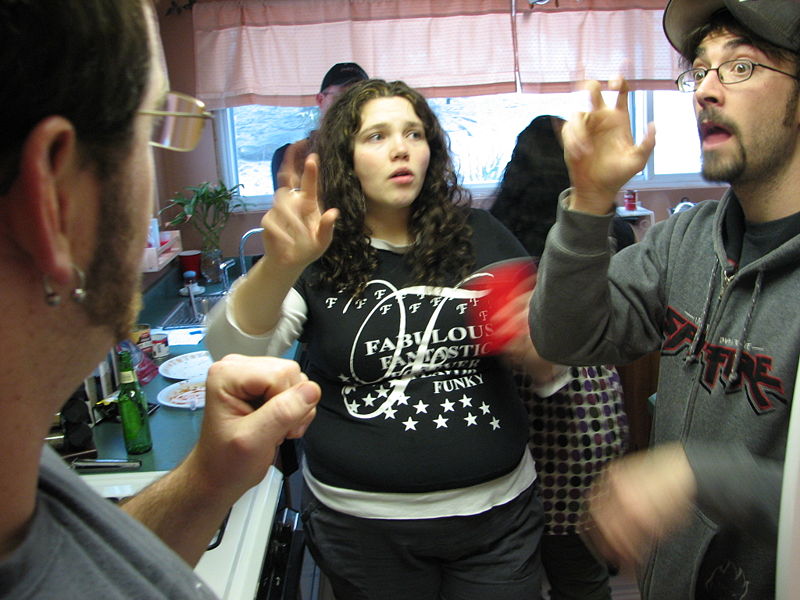A Quick Tour to Babel
No, this is not a story-telling session. If you want to know more, you can look up Genesis 11:1-9. However, you will not find the title “Tower of Babel” in the narrative and might wonder why. Owing to etymology, the name “Babel” came from Hebrew “balal” or jumble. The Hebrew word for “to confuse” has a similar sound, “lebalbel“.
It is no coincidence that the meaning of the English word “babble” is synonymous with “to jumble words in confusion“. We can visit some languages of the world and find similar root sounds; barbullar (Sp), babiller (Fr), babbla (Swedish).
Source: Online Etymology Dictionary-babble
Back to Babel in the meantime. While there is no explanation on how the distribution of language from one common tongue came to be, we always look back to the incident at the tower. According to Henry M. Morris in “The Confusion of Tongues”, so far, it is only the Biblical account that has satisfied the needs to seek the evolution of anthropological linguistics.
The Tower of Babel by Pieter Bruegel the Elder
Across the ages, as mankind traveled far and adapted to the different parts of the world, it seems that they didn’t only bring similar words but the concept of “Babel” as well. Legends of The Great Pyramid of Cholula, Mexico is reminiscent of the Babel story as was Ancient Toltec myth according to accounts by historian Fernando de Alva Ixtlilxochitl. Whether the narratives are true or not, they remain to be classified as myths and legends. But if the existence of the great buildings is in question, Archaeology has sought out the ruins, which may link lore to reality.
Having Fun with Words
The internet has offered us the convenience of taking a peek at foreign tongues. Reliable translators are available online wherein you merely type a target word and have it translated to a language you don’t hear in daily conversations. There are also websites that provide a whole list of languages for one word or phrase.
Different Tongues, Similar Words
Before we proceed to more word adventures, there is, however, one aspect we are not general about and that is how we respond to “thank you“. Translating world responses for “thank you” does not universally get you to a “you are welcome”. Different regions, dialects, have their way of answering back. What we do seem to agree most about is how we call our parents. Father has developed from equally evolving words; vader (Dutch), fadir (Old Norse), pater (Latin). They became pater, pa, papa, ta’ (Nahuatl, Mexico), tata (Romanian) or tatah (Pipil El Salvador), to tatay (Philippines). National and regional pronunciations and accents have greatly contributed to the change whereas “dad” came from “dada”, which could have been derived from changing the “t” in “tata”, like “pater” to “fater” to “father”. Likewise, we have the mother, which came from Latin “mater”. The same happens with the influence of regional accents; mater, moter, mother, or mater, mama, ma, mom. Although it may seem to have changed dramatically with Ammee (Urdu); Anne, Ana or Valide (Turkish); eh (Mongolian); Aayi (Marathi), Oka-san or Haha (Japanese); Anya or Fu (Hungarian); Aiti (Finish); Induk, Ibu, Biang (Indonesian); and Abatyse (Czech), you can still see that some have been drawn from origin. This origin is simply from the mouth of a child who is learning his or her first words. Again, as regional accents come to play, it will influence a child’s way of saying the word depending on what he or she hears from the environment.
If you ask me…
Here is where I will spoil your expectations for “I love you.” Save the best for last, hey!
Inasmuch as love is universal, acknowledging it comes in many different ways — as plentiful as dialects could go. Even if “te” and “ti” for “you” can be similar, there aren’t two phrases that express “I love you” (almost) exactly the same way across an ocean. Unless of course, everyone speaks English, right? But the point here is, despite geographical gaps and linguistic differences, we have managed to communicate with each other. Whether or not we find anymore comparable words in two different races, the important thing is we have a common interest at harmonious United Nations relations.
